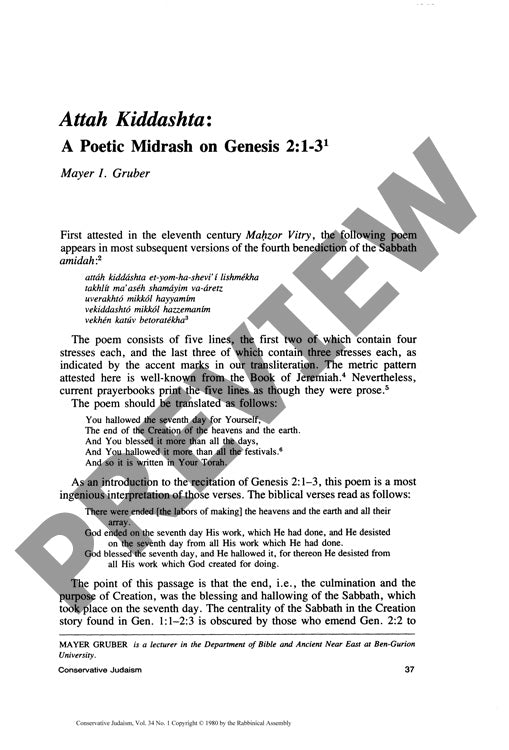Attach Kiddashta a Poetic Midrash on Gen
Couldn't load pickup availability
Medieval Jewish poets radically reframed the theological significance of creation through sophisticated liturgical compositions, as evidenced in "Attah Kiddashta," an eleventh-century poem first documented in Mahzor Vitry. Through its intricate metrical structure - four stresses in the first two lines and three in the remaining three, echoing patterns found in Jeremiah - the poem crafts a profound midrashic commentary on Genesis 2:1-3 within the fourth benediction of the Sabbath amidah. Central to the poet's interpretation is the strategic deployment of the Hebrew word "takhlit" (end), which simultaneously connotes completion and purpose, to argue that the Sabbath, not humanity, represents the true culmination of divine creation. By interpreting the Hebrew verbs "vayekhullu" and "vayekhal" as indicating fulfillment rather than mere cessation, the poem challenges traditional anthropocentric readings of Genesis that position humans as creation's crown. This philological and literary analysis reveals how the medieval composition advances a theologically significant alternative reading that emphasizes the primacy of sacred time over human dominion, offering valuable perspectives for contemporary ecological discourse.

More Information
-
Physical Description
-
Publication Information
Published 1980
ISBN
-
Publication Credits
Mayer Gruber

